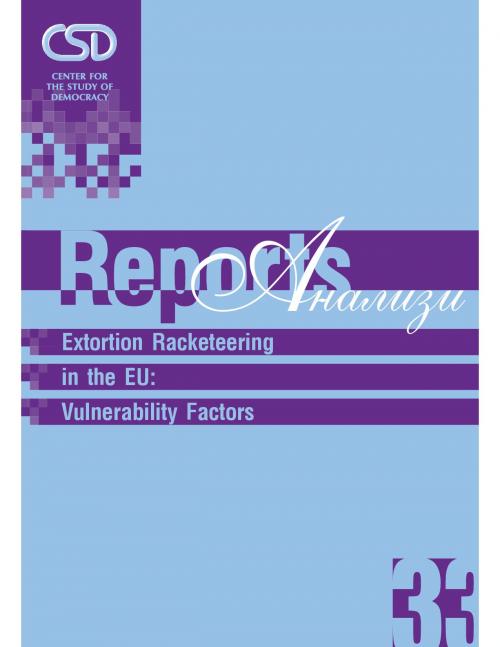
We kindly inform you that, as long as the subject affiliation of our 300.000+ articles is in progress, you might get unsufficient or no results on your third level or second level search. In this case, please broaden your search criteria.

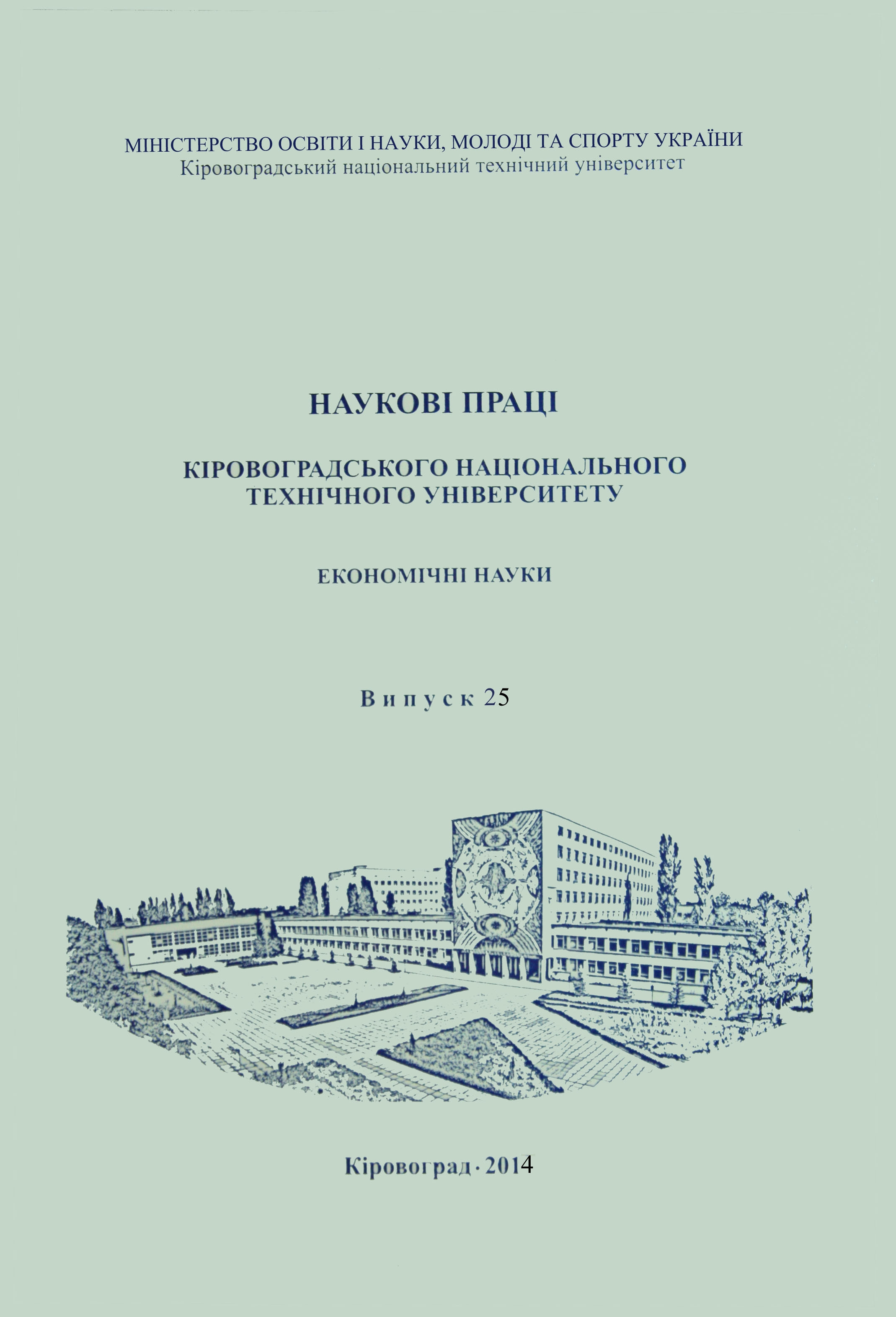
The article should analyze the situation when the state regulatory policy actually hampers the development of enterprises, leading to significant losses in carrying out even the simplest of transactions. It negatively affects the financial performance, including the income. We need to consider ways in which companies can implement socially responsible activities only if for this they have appropriate financial resources. Therefore, the absence of favorable for business development of regulatory policy is one of the factors inhibiting social responsibility of Ukrainian enterprises. The article analyzes the financial framework of corporate social responsibility in the transformation period of transition from a centrally planned to a market economy , as well as at the present stage . Connection of the social responsibility of business with the financial activity of Ukrainian enterprises is defined, as well as the possibility of using foreign experience in the Ukrainian realities. It is obvious that the change of concepts of CSR towards the economic motivation for its implementation would not take place if there was no real positive impact of strengthening the social functions of companies on their financial situation. We can distinguish the following main factors of influence: stimulation of personnel to maximize their labor due to increasing the interest in the outcome of companies, increasing human potential; advancing the competitiveness of companies in the labor market, the possibility of attracting the most qualified employees; reduction of financial losses due to companies creating the conditions to prevent industrial action; improving the company's image in the eyes of customers, suppliers and authorities, as well as the value of its brands, that has particular importance in terms of the growing role of intangible assets of companies that is recorded in the world last decade; increasing the investment attractiveness due to making them more transparent economic activities in the framework of CSR (it has a partly positive impact on raising funds by issuing of securities in the implementation of IPO); CSR standards take into account some of the rating agencies in determining the rankings of companies that in some way affect the financial results of their activity. The foregoing allows us to conclude that the development of the social functions at the level of individual enterprises, the enhancing of their social responsibility corresponds the tendencies inherent in the developed countries. It can be considered as one of the important directions of improving the financial situation of industrial enterprises in Ukraine.
More...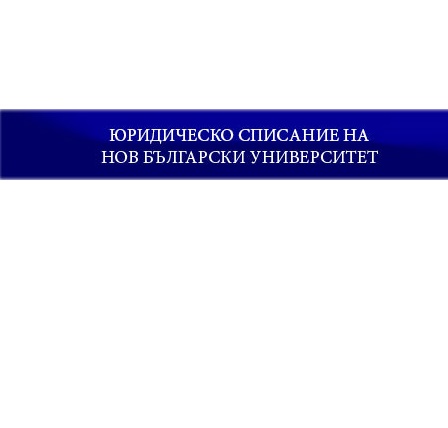
The World Economic Forum is an independent international organization dedicated to improving the state of the world by engaging business, political, academic and other community leaders to create global, regional and industry programs. The World Economic Forum is an international non-governmental organization based in Geneva, Switzerland. Its original name was the European Management Forum, and in 1987, it changed to the World Economic Forum.
More...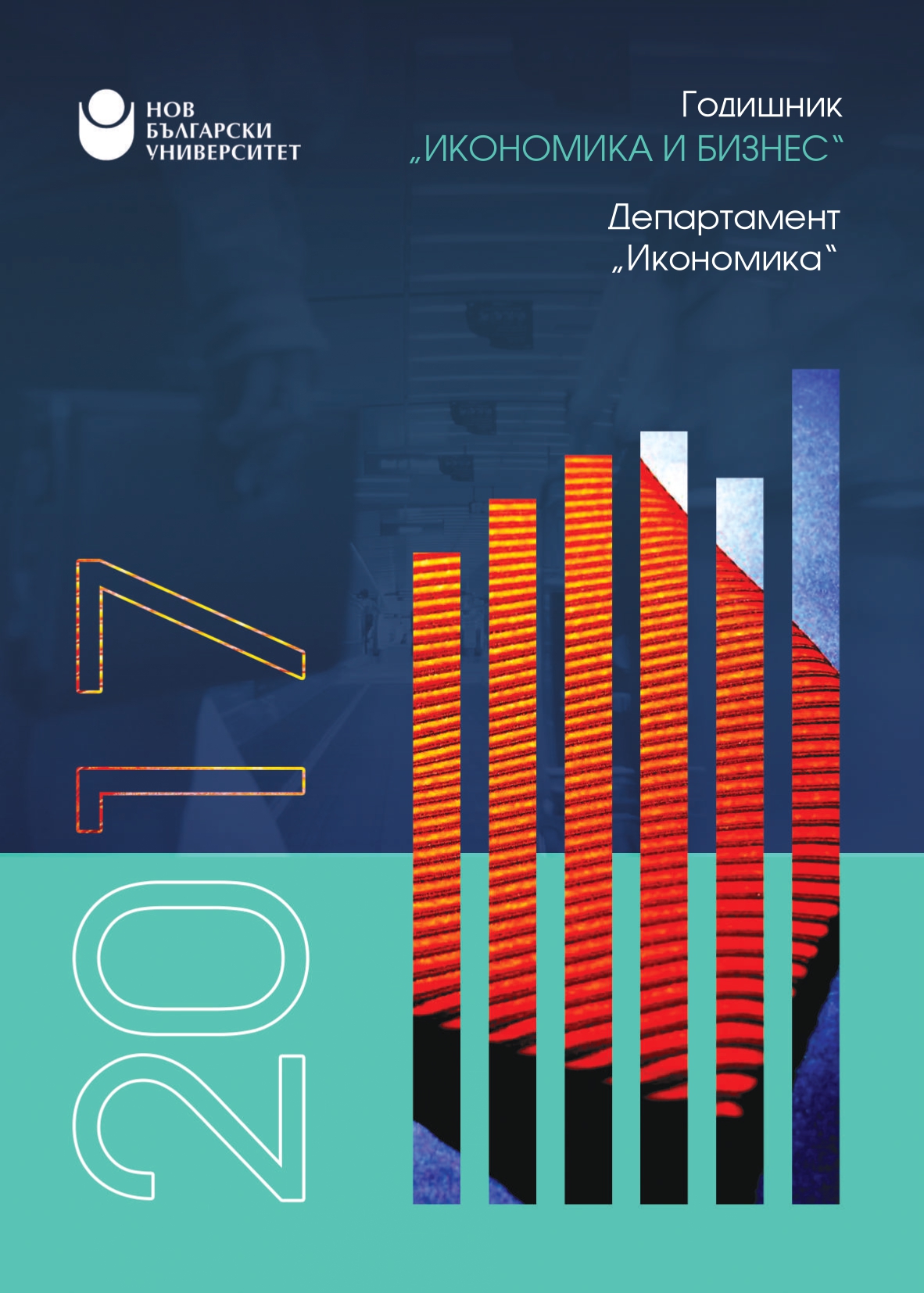
In the modern world, banking products and services have entered into the lives of people. The global financial crisis and bankruptcy of Corporate Commercial Bank in the summer of 2014 in our country showed many problems in the banking sector globally and in our country. Countries, institutions, citizens and businesses have suffered greater or lesser losses. And the result is - decline in confidence in banks. If those bank customers were more competent, their losses would be significantly smaller. This is a serious problem that needs to be investigated and resolved.
More...
Customer loyalty and engagement to the brand and/or company becomes an increasing company asset. To keep this situation the enterprises began to use as an important CRM tool a customer loyalty programs. Customer’s frustration of the using of loyalty programs has a negative effect on the customer buying behavior and the organization’s profit. In this paper I highlighted as very important determinants of customer frustration of using customer loyalty programs their concrete design and their type as well as their service.
More...
Customer loyalty and engagement to the brand and/or company becomes an increasing company asset. To keep this situation the enterprises began to use as an important CRM tool a customer loyalty programs. Customer’s frustration of the using of loyalty programs has a negative effect on the customer buying behavior and the organization’s profit. In this paper I highlighted as very important determinants of customer frustration of using customer loyalty programs their concrete design and their type as well as their service.
More...
The calculation of the risk of non-financial companies is a complicated process that theoretically and practically lags behind the analogous processes in the financial companies. This article focuses on the VaR as an indicator for determining the risk in financial investments and the problems it faces to apply it to non-financial companies. Then the research is concentrated on the presentation of the CFaR, the difficulties in applying it and the benefits of using it in companies.
More...
The currency board system that has been introduced and sustained in Bulgaria since 1997 is assessed on the basis of its impact on the macroeconomic conditions in the country. The assessment is founded on the theoretical advancements on the topic and on the empirical observations on the role of the currency board in Bulgaria when macroeconomic crises and external shocks occur. The conclusions for the procyclical and conservative nature of the system are the basis of development of three scenarios for the future of the currency board in Bulgaria – a realistic, an optimistic and a pessimistic one. The main prerequisites for their implementation are outlined. The associated risks are stated.
More...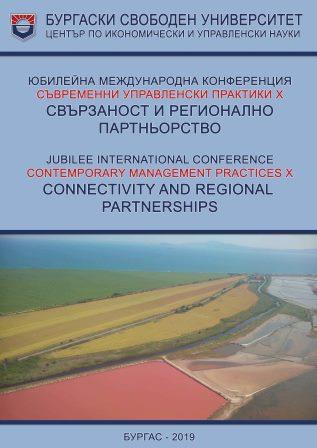
This paper presents an analysis of the relation loyalty - corporate culture. The clarification of the specifics of the concept of „loyalty“ precedes the presentation of the loyalty model of the staff in the organization. Based on the book „Competing Values Framework“ of the world-famous american scientists K. Cameron and R. Quinn considered the following types of culture: clan, adhocracy, hierarchy and market. Outlined are the manifestations of loyalty in the proposed typology. It has been establishing that the staff loyalty plays a crucial role in the formation of the corporate culture.
More...
As business organizations and scientific and academic thinking are constantly searching for adequate concepts and practical solutions to address current challenges facing business organizations. In this regard, customer value quickly gained popularity and became one of the dominant concepts in the academic literature and business practice. Despite this fact, surprising to many, but not to the team that developed the current publication, that there is no consensus on defining the concept of customer value, and there is no common, uniform definition for it. Even very often in the realization of scientific and practical studies related to customer value, no attempt is made for an explicit definition. It comes to the situation that customer value is one of the most commonly misinterpreted, misplaced and ambiguous notions in science and practice. The reasons for this are many and in this regard we seek to answer a number of research questions, the main ones being: What is customer value? Who, where, and how does it create customer value? In addition, we review the most commonly used metrics of client value.
More...
Global economic risks have impact on the various participants by changing their environment. The debt crisis from 2010 and the high external debt in some countries have increased them. The global economic risks, the external government debt and the possibility for a new debt crisis are presented in the paper.
More...
The article discusses the budgeting process as a vital component of an enterprise’s control system through which management successfully plans, coordinates, and controls the implementation of the organization’s goals. The total (master) budget, which coordinates the functions of all units in the enterprise and its components – the operating and financial budgets are presented. The evolution of the budgeting approaches in the enterprise is followed by examining the advantages and disadvantages of the individual budgeting approaches. As a result, a multi-budget approach has been proposed combining the strengths of individual approaches.
More...
Controlling the movement of goods with high fiscal risk is a set of activities of revenue bodies (National Revenue Agency) in order to prevent tax evasion and tax evasion in connection with the movement of goods with high fiscal risk on the territory of the country (Republic of Bulgaria). With control or fiscal control, on the movement of goods, with a high Fiscal risk does not establish tax liabilities but can be established certain facts and circumstances relevant to tax obligations. The list of goods with high fiscal risk is approved by an order of the Minister of Finance on a motivated proposal of the Executive Director of National Revenue Agency. Fiscal control is subject to the movement of all goods with a high fiscal level risk, irrespective of the place of receipt/unloading of the commodity – the territory of country, territory of another Member State of the European Union or territory to a third party.
More...
This article studies the impact of tourist perceptions, destination image and satisfaction on tourist loyalty; to analysis the components, attributes and factors influence of the tourist perception and destination image; to examine the attributes of tourist satisfaction and to expose the determinants of destination loyalty. Tourism Destination Image through the prism of tourism perception, motivation andSatisfaction
More...
The expand of the coverage of brands from mere marketing tools to intangible assets of higher value and strategic significance for companies inevitably has leaded both to development and some complications in their protection as objects of intellectual property protection. Currently, from management perspective, it is hard to say which approach is more important in terms of gaining competitive advantages: name registration, particular geographical indications registration, know-how defense or design/s registration. This article scrutinizes a particular example in this train of thoughts – a practice of IKEA, that is design-driven both ‘philosophically’ and on the corporate and production level.The challenge before the Swedish giant is even bigger since it strives for creating comfort, consumer experience and desire for next purchase without losing its traditions and initial business formula. For the purpose of the analysis, an expert research has been conducted, whose focus has been put on the number and type of registrations that we could find by searching in the data bases of World and European intellectual property organizations, as well as in some local bases – Bulgaria, Sweden and USA.
More...
In this paper an attempt for comparative analysis of the business environment inBulgaria is made for the period 2007–2017. The main aim is to monitor and analyze its conditionand to make appropriate conclusions on what level has been achieved over the past years in thecontext of the Bulgarian membership in the European Union. The current situation and dynamicsare assessed through critical review of different indicators. The purpose is to determine whetherprogress has been made in this important economic aspect. In the study are used the methodsof analysis and synthesis, induction and deduction, analogy, abstract and summary. The most recentdata, which is officially published by significant national and international organizations andinstitutions, is analyzed. On this methodological basis are made relevant conclusions of the currentstate of the business environment in Bulgaria.
More...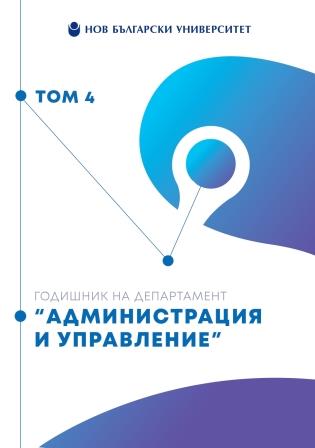
Artificial intelligence development and its impact on humans' life are analysed very often nowadays. In this study is presented a vision of the corporate world after a decade. It is put on focus the expected changes in human resources management thanks to artificial intelligence development. The development and implementation of artificial intelligence-based systems create opportunities but also challenges that companies should meet shortly.
More...
Habermas's works on democracy, communicative action, ethics and rational debate in the public sphere are widely used as a theoretical basis for the essence of cultural policies. His theory of communicative action distinguishes between the imperative needs of the system and the rationality of the human lifeworld. The purpose of this article is to analyze Habermas's concept of „communicative action" as an alternative paradigm for cultural policy-making, not through instrumental action, but through democratic consensus, in which the participants themselves define the goals of future development. The need for maturity, adequacy and motivation of the civil society in the cultural sphere is also substantiated.
More...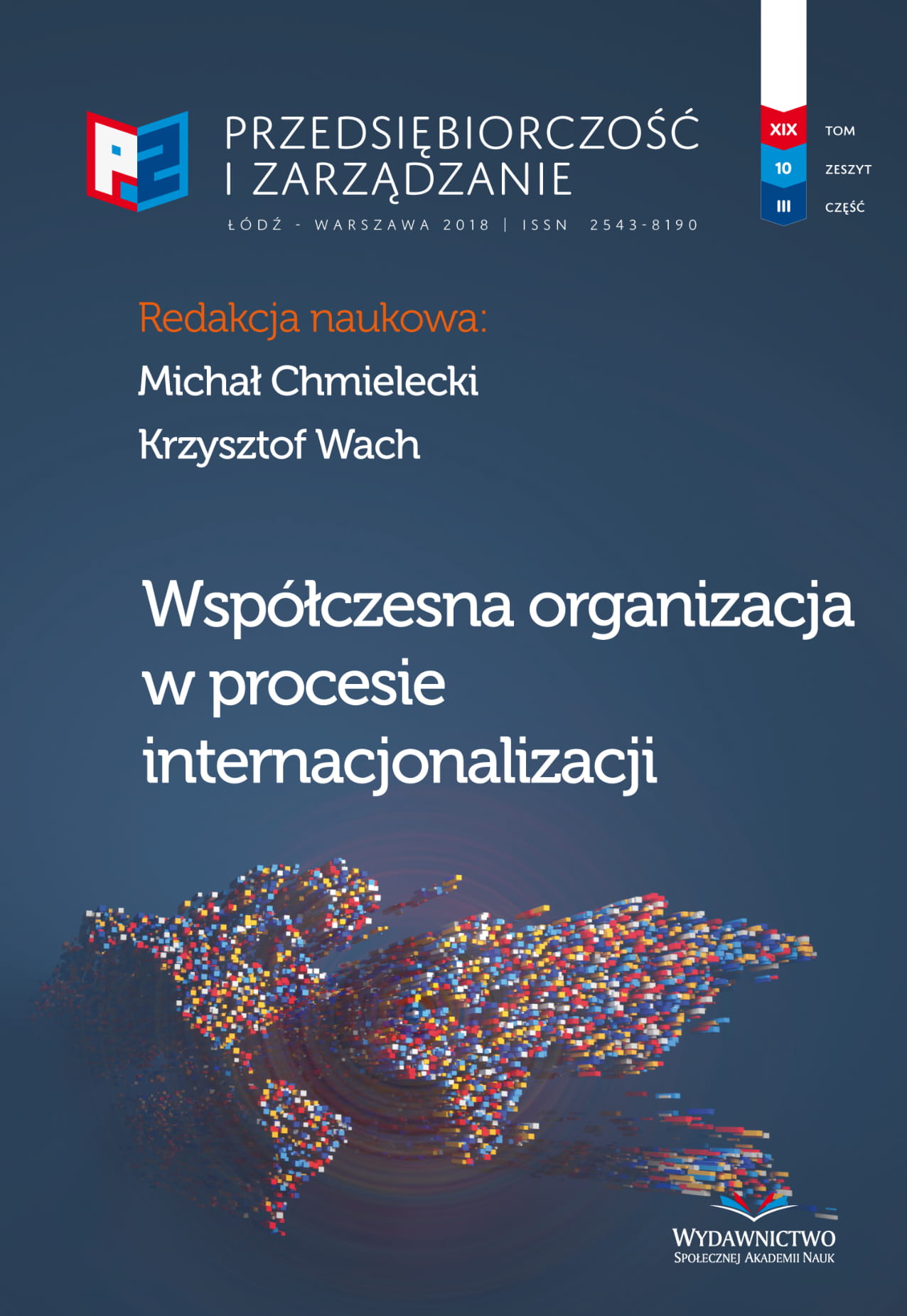
Background. For universities, it is essential to develop in the direction of market expectations. It is necessary to enter into cooperation with entrepreneurs which allows technology transfer to create innovations. The knowledge triangle model is a concept that involves creating relationships between universities, research institutions and enterprises. This idea is very important for European policy and is implemented by the European Institute of Innovation and Technology (EIT). However, it is worth checking whether it is actually being implemented. Research Aims. To check if the approach of the knowledge triangle is used in practice by entities set up under the EIT. Another research aim is an exploration of the current directions in which the university’s cooperation with other bodies is heading, and if this has an impact on raising the level of innovation in Europe. Methodology. A look at the model of cooperation between universities and the environment and search for an appropriate framework of benefit from this kind of collaborationon scientific literature review. Moreover, the desk research regarding the EIT Food – one ofthe European initiatives in the food sector. Key findings. The analyses carried out allow us to state that the concept of the knowledge triangle is not just a theoretical idea. The concept has its application in practice. It was also identified that universities are the main engine of all undertaken activities in thefield of education, research and innovation.
More...
The literature on the subject, as well as the practice, point to the evolution of the concept of the labor market functioning, and thus the principles of policy financing related to intervention in this market. The aim of the study is to present the labor fund as a source of financing active and passive labor market policy from the point of adequacy of intervention of public authorities (government and local government).The article provides a detailed analysis of the income of the labor fund and expenses incurred from this fund for active and passive labor market policy. The article analyzes the case of Poland.
More...